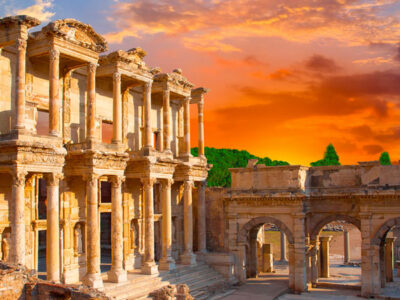Izmir
Izmir is the third largest city in Turkey with a population of around 5 million. It is the second largest port after Istanbul, a modern, developed and bustling trading hub, located around a huge bay and surrounded by mountains. Wide boulevards, glass-fronted buildings and modern shopping centers are dotted with traditional red-tiled roofs.
There is also an 18th century market and old mosques, churches and synagogues. There is a much more Mediterranean atmosphere than traditional Turkey. Izmir was also a meeting point for Persians, ancient Greeks, Assyrians, Romans, Byzantines and Ottomans. It is therefore a real cultural melting pot that can be found in this city.
In classical antiquity, the city was known as Smyrna. Izmir has nearly 4,000 years of recorded urban history and possibly more as an advanced human settlement. Situated in an advantageous location at the head of a gulf halfway on the west coast of Anatolia, the city has been one of the main trading towns in the Mediterranean Sea for much of its history.
Its port is Turkey's main export port. The city's golden age came in the 19th century when the region's products, such as cotton, attracted French, English, Dutch and Venetian traders and the city became one of the most important trading centers. most important of the Ottoman Empire. At the end of the 17th century, Izmir was also home to a large Greek, Armenian and Jewish population, a multicultural past that continues to express its presence in the cuisine and architecture of Izmir. Izmir also currently has the second largest Jewish community in Turkey with around 2,500 members who reside mainly in the traditional district of Karatas.

